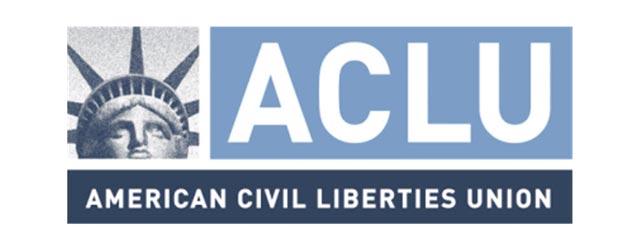by: Ashley Matthews

1. Research Debt Management Tools and Create a Budget.
Student loan debt is perhaps the biggest reason many law graduates don’t enter the public interest sector. Before you jump headfirst into public interest law, research the basics of managing student loan debt. Find out if your law school participates in a Loan Repayment Assistance Program (LRAP). It’s also very important that you get to know the College Cost Reduction & Access Act of 2007, which created the Income Based Repayment Plan and the Public Service Loan Forgiveness program for qualified borrowers. For more information, check out PSJD’s Guide to Financing a Public Interest Career. Be honest with yourself about what is economically feasible for you, and enter your public interest career with eyes wide open to all available opportunities to lower your debt.
2. Find and Define Your Passion.
As soon as possible, you should begin narrowing down what type of public interest law you are interested in practicing. If you are interested in family or juvenile law, keep track of all your experiences working with children. If you spent a lot of time volunteering at a community clinic, maybe you would enjoy practicing health law. These types of community service activities are a great way to not only show your dedication to prospective employers, but to prove it as well. Even if you don’t have a demonstrated commitment to one particular area, now would be a good time to start narrowing it down. Search PSJD.org to create a list of non-profits or other organizations that work in the field you are passionate about, and contact them about available volunteer opportunities.
3. Plug into your school’s public interest community.
A supportive environment can make a big difference in whether or not you choose to actually pursue public interest law. Have you learned about your school’s public interest advising and career counseling resources? Do any of your school’s professors have backgrounds and interests related to public interest law? Does your school require or encourage law students to commit a certain number of hours to pro bono work? Are there grants available to fund public interest work done by law students? These are some of the basic questions you should be asking – which brings us to #4.
4. Schedule an appointment with your law school’s career services office.
Schedule an appointment with your career services advisor. If your school has a specific office set up just for public interest-minded students, even better! Let them know you are interested in pursuing public interest, and don’t be afraid to let your passion shine through. Highlight some of the organizations you would like to work or volunteer with – your advisors may already have existing connections to them. Also, ask your advisor if there are any upcoming public interest events in your legal community, such as networking receptions or benefits, that you could possibly attend. Last but not least, ask for any information on funding summer public interest work.
5. Join relevant student organizations.
This is a great way to meet like-minded students and demonstrate your commitment in another way besides work experience. In addition to any narrowly focused organizations (such as a criminal law or environmental rights student groups), try to join your law school’s student-run general public interest organization. Do your best to take on any leadership role that is best suited to your unique talents, and meet as many people in the legal community as possible! Be creative in coming up with ways your law school’s public interest groups can engage not only fellow law students and lawyers, but the outside community as well – specifically low-income or marginalized populations.
6. Apply for a clinic suited to your public interest passion.
All the passion, planning, and extracurricular activities in the world cannot make up for hands-on experience. Your law school’s clinical opportunities present a terrific way to get experience on your resume. Clinics allow participants to grow as student attorneys under the watchful eye of supervising lawyers and fellows, and also discuss substantive issues safely in a classroom environment.
7. Volunteer at a local organization.
Apply on your own to volunteer at a local organization while in law school. You can use PSJD to search for local non-profit organizations, government offices, legal services organizations, and private public interest firms that may have available opportunities. Public interest lawyers use a wide variety of methods to help provide access to justice for their clients – including, but not limited to, individual representation, community organizing, impact litigation, education or policy reform. Research each opportunity to figure out which type of representation fits best with your interests.
8. Create a list of all upcoming public interest career fairs.
Career fairs are a great way to have face-to-face conversations with potential employers. Your law school’s career services office more than likely has a variety of resources with career fair dates, and PSJD continuously updates our Public Interest Career Fair Calendar. Even if you are not currently looking for full-time or summer employment, you may meet someone at a career fair that could be of great benefit to your job hunt in the future.
9. Make yourself stand out in your cover letter.
The reality is that all students applying for public interest jobs should (and more than likely will) have: passion; a demonstrated commitment; clinical, internship and extracurricular experience; and strong networking skills. If these are the basics on every resume that a potential employer reads, how will you stand out? Think about any creative and unique skill sets you may have that can match an unmet need of the organization you are trying to work for. Play up these characteristics or attributes in your cover letter! PSJD’s Resource Center has great tools to help create your best cover letter and resume.
10. Use PSJD.org!
PSJD is specifically catered to public interest law students and lawyers, so take advantage of all the resources and information available on the site. Keep track of your “dream jobs” by adding them as favorites. Set up customized email alerts to get the most recent public interest job postings right in your inbox. Browse PSJD’s Resource Center for information on fellowships, interview tips, and more. And keep following this blog – along with PSJD’s Facebook and Twitter pages – to stay up to date on public interest news and career resources.









